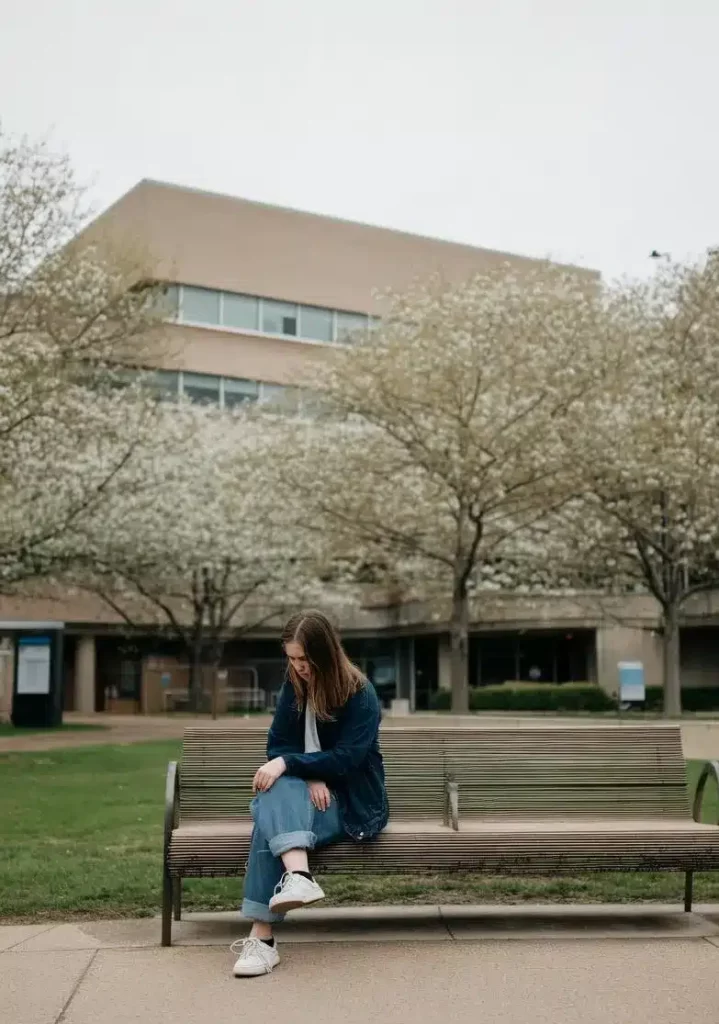- Home
- Sexual Abuse
- University Sexual Abuse
University Sexual Abuse
- February 15, 2026
-
Sarah Miller
- Fact Checked By Our Attorneys
University sexual abuse is a serious and widespread issue, encompassing sexual assault, sexual harassment, sexual misconduct, and other forms of sexual violence that occur on college or university campuses. Thousands of students are harmed each year, often by faculty, staff, fellow students, or other trusted individuals. Survivors have the right to support, protection under Title IX, and the ability to pursue civil lawsuits to seek justice and compensation for the harm they have suffered.
If you or a loved one has experienced sexual abuse, it’s important to understand your rights and explore your legal options contact Legal Claim Assistant today for a free and confidential case review to see if you qualify for a lawsuit.
No Win, No Fee. Let the Best Sex Abuse Attorneys Fight for your Compensation!
Key Takeaways:
University sexual abuse includes sexual assault, harassment, and misconduct, and can occur faculty-on-student, student-on-student, staff, or third-party situations.
Survivors may experience long-term effects such as trauma, PTSD, anxiety, depression, and academic or social difficulties.
Abuse often occurs in trusted institutional settings, and failures by universities to act can worsen the impact on survivors.
Legal options are available, including civil lawsuits against universities or negligent staff, and survivors can seek financial compensation, institutional reform, and restorative justice.
- Free and confidential case reviews from Legal Claim Assistant can help survivors determine if they qualify to pursue a university sexual abuse lawsuit and connect with experienced attorneys.
Find out your eligibility in 2 minutes
If your child has been a victim of sexual abuse, you are not alone. Many families face the same fear, pain, and search for justice. Our team can connect you with experienced child sexual abuse attorneys who understand these sensitive cases, protect your child’s rights, and guide your family through filing a legal claim for the compensation and accountability you deserve.
Begin your free and confidential case review today.

What Is University Sexual Abuse?
University sexual abuse refers to any unwanted sexual contact, coercion, harassment, or exploitation that occurs on college campuses. This can include sexual assault, sexual harassment, sexual misconduct, dating violence, and other forms of campus sexual violence.
Perpetrators may be faculty members, staff, fellow students, or third-party actors connected to the university community. Both male and female students, as well as sexual minority students, can experience sexual victimization.
Survivors of attempted sexual assault on college campuses may struggle with mental health challenges such as post-traumatic stress disorder (PTSD), anxiety, and depression. These experiences can negatively affect academic performance, social relationships, and overall well-being.
How Common Is Sexual Abuse on College Campuses?
Sexual assault victimization among college students is a widespread problem. National data from sources like the National Sexual Violence Resource Center (NSVRC), the Department of Education, and the Clery Act reveal that a significant percentage of female students and male students experience sexual assault reported incidents during their time in postsecondary institutions. Many cases involve acquaintance rape, interpersonal violence, or dating violence, and sexual minority students may face higher risks of sexual victimization.
The first weeks of the semester, often referred to as “The Red Zone,” are especially high-risk for sexual assault incidents. Societal attitudes, alcohol or drug use, and campus culture can exacerbate risk factors. Survivors may face challenges in reporting sexual assault due to fear, stigma, or lack of institutional support, though universities are required to provide Title IX coordinators, reasonable accommodations, and disciplinary processes.
High-profile failures at institutions like Ohio State University and Liberty University highlight systemic issues in protecting students.
If you or someone you know is experiencing warning signs, learn more about the Signs of Sexual Abuse to identify and address potential abuse early.
Risk Factors Unique to Universities
University students face a variety of threats that can increase their vulnerability to sexual assault, sexual harassment, and other unwanted sexual experiences. Alcohol and drug use, dorm culture, and social pressures in college environments can contribute to situations where sexual assault occurs. Power imbalances between professors, staff, and students, or between student leaders and other students, may also create opportunities for exploitation.
Greek life, athletics, and other campus housing organizations often carry hierarchical structures that can expose college women, male students, and sexual minority students to elevated risks. International students and other vulnerable populations may encounter additional challenges, including cultural barriers, limited awareness of Title IX protections, and lack of access to mental health resources.
Research published in the Journal of Interpersonal Violence highlights how factors like gender identity, sexual orientation, socioeconomic status, and prior experiences of child abuse can affect the likelihood of experiencing sexual victimization on campus.
Universities are expected to implement policies and educational programs, maintain counseling services, and provide access to Title IX coordinators to protect potential victims and support survivors.

High-Profile University Sexual Abuse Scandals
Several universities have faced high-profile sexual abuse scandals, exposing systemic failures to protect students. Notable cases include Liberty University Scandal, Bob Jones University Scandal, Messiah University Scandal, and Bennington College Scandal, as well as medical-related scandals at Michigan State University and Ohio State University. These cases demonstrate how institutional negligence, lack of enforcement, or misuse of university policies can leave sexual assault victims without protection or recourse.
Survivors from these universities including college women, male students, and sexual minority men and women have experienced sexual assault, unwanted sexual experiences, and interpersonal violence, often resulting in post-traumatic stress disorder, anxiety, and long-term mental health effects. Other high-profile incidents, such as University of Houston Sexual Assault, Anna University Rape, and Indiana University Sexual Assault, further illustrate the scope of these challenges.
These scandals highlight the urgent need for survivors to report sexual assault, seek support through counseling psychology services, and understand their legal options.
Awareness of such cases can help other students and potential victims recognize warning signs and advocate for stronger university policies to prevent future abuse.
FREE!
Find out if you're eligible and may be eligible for compensation.
Get your Free Case Review and Maximize You Payout With the Help From Legal Claim Assistant.
Title IX and University Obligations
Title IX is a federal law that requires universities to take immediate and effective action when a report of sexual assault, sexual harassment, or other forms of sexual misconduct is made. Universities must provide a Title IX coordinator, implement fair disciplinary processes, offer reasonable accommodations, and ensure that survivors are not subject to retaliation. These measures are designed to protect all victims of sexual assault, including sexual minority women, heterosexual women, and male students, and to maintain a safe campus community.
Despite these legal obligations, many institutions have faced criticism for cover-ups or inadequate enforcement. Failure to act can exacerbate trauma for students who have experienced rape, unwanted sexual experiences, or sexual assault experiences, and can negatively affect their women’s mental health, academic performance, and overall well-being.
Universities’ responsibilities under Title IX differ from the Clery Act, which focuses on reporting crime statistics and maintaining federal transparency. Understanding the difference helps survivors and the campus community hold institutions accountable and advocate for stronger education programs, restorative justice approaches, and institutional support.
For a parallel example of institutional failure in protecting victims, see Clergy Sexual Abuse, which highlights how trusted organizations can also fail survivors.
Filing a University Sexual Abuse Lawsuit
Survivors have the option to pursue a civil lawsuit in addition to any campus disciplinary action. American Universities, administrators, and negligent staff can all be held legally responsible for failing to protect students from sexual assault or harassment. Civil lawsuits are designed to seek justice and compensation for victims of sexual assault, including college women, sexual minority women, student athletes, and other students who have suffered sexual assault experiences or experienced rape.
To pursue a lawsuit, survivors need to gather documentation such as police reports, campus reports, witness statements, medical records, and evidence of abuse. Timely action is crucial, as federal funding and university compliance with Title IX can be impacted by legal proceedings. Survivors may also leverage the Title IX website and guidance from national centers or the National Institute for supporting to prevent sexual assault victims.
Civil lawsuits can address multiple forms of harm, including gender-based discrimination, domestic violence, and experience sexual harassment, and can result in financial compensation, institutional reform, and restorative justice measures for the campus community.
Learn more about how to file Sexual Abuse Lawsuit.
Statute of Limitations for University Sexual Abuse
The statute of limitations for university sexual abuse cases varies by state, and some states have enacted revival laws that allow survivors to pursue claims even many years after the abuse occurred. This is particularly important for survivors who were sexually assaulted as students and may not have been ready to come forward at the time.
Consulting a lawyer as soon as possible is crucial because deadlines for filing can differ depending on the type of claim, the survivor’s age at the time of abuse, and the institution involved. Legal guidance ensures that survivors understand their options, can preserve evidence, and access justice before time runs out. Future studies also indicate that timely legal action can improve outcomes for survivors and encourage American universities to implement stronger education programs and campus safety policies.
“University should be a place of higher learning and safety, not silence and fear in the face of sexual abuse.”
Compensation for Survivors of University Sexual Abuse
Survivors of university sexual abuse may be entitled to a variety of compensatory damages. Economic damages can include tuition lost due to the assault, therapy or counseling costs, and relocation expenses for undergraduate students as well as other who were forced to leave campus for safety. Non-economic damages address the emotional and psychological toll of abuse, such as PTSD, trauma, pain and suffering, and long-term impacts on American College Health and mental well-being.
In cases where universities acted negligently or failed to enforce Title IX and campus safety policies, survivors may also be awarded punitive damages. These damages aim to hold institutions accountable for systemic failures and encourage the development of safer campus environments. Federal regulations, such as access to federal financial assistance, may also be relevant when evaluating claims and institutional liability.
How to Protect Students on Campus
American Universities have a critical responsibility to protect students from sexual assault and abuse. Warning signs that an institution may be failing include lack of safe reporting channels, insufficient oversight, retaliation against students including undergraduate students who report, and inadequate education programs. Prevention policies should include independent review boards, anti-retaliation measures, clear Title IX procedures, and mandatory training for faculty, staff, and student leaders, including associate professors and campus administrators.
Parental and peer awareness also plays an important role in safeguarding incoming students, especially during high-risk periods such as the first weeks of the semester, known as The Red Zone. Institutions that implement strong preventive measures, regularly review education statistics, and engage in active task forces to monitor campus safety can significantly reduce incidents of sexual assault.
Learn more about Sexual Abuse in Schools.
FREE!
Find out if you're eligible and may be eligible for compensation.
Get your Free Case Review and Maximize You Payout With the Help From Legal Claim Assistant.
FAQs About University Sexual Abuse
How common is sexual assault in universities?
Sexual assault on college campuses is unfortunately common. National surveys and education statistics indicate that a significant number of college students experience sexual victimization, including force or unwanted sexual experiences.
Can I sue a university for covering up abuse?
Yes. Survivors can pursue civil lawsuits against universities, administrators, or negligent staff if institutions failed to protect students or covered up sexual abuse. Timely legal action is crucial, especially if the survivor is approaching the same age threshold under the state’s statute of limitations.
What rights do students have under Title IX?
Title IX guarantees that students have a right to safe educational environments, restorative justice, reasonable accommodations, and access to a Title IX coordinator. Universities are legally obligated to investigate reports of sexual assault and implement corrective measures.
What is the Red Zone in college?
“The Red Zone” refers to the first weeks of the semester when students are at heightened risk of sexual assault, often due to social pressures, alcohol use, and campus culture dynamics.
Can I take legal action years after the abuse?
Many survivors can still pursue claims even years later, particularly in states with revival laws for sexual abuse cases. Consulting a lawyer quickly is essential to preserve evidence and ensure legal deadlines are met.
How Legal Claim Assistant Can Help
At Legal Claim Assistant, we understand the challenges survivors of university sexual abuse face. That’s why we offer a free and confidential case review to help you determine if you qualify to pursue legal action. Our experienced team connects survivors with university sexual abuse attorneys nationwide, ensuring you have trusted legal support no matter where the abuse occurred.
Even if your university failed to protect you, you still have the right to seek justice. Our goal is to guide survivors through the legal process, provide clarity on your options, and help hold negligent institutions accountable.
Take the first step toward justice and compensation today.
You Deserve Justice. Let Us Help.
Speak with a trusted sexual abuse attorney who will stand by your side, protect your privacy, and fight for the compensation you deserve.
No Win, No Fee. Let the Best Sex Abuse Attorneys Fight for your Compensation!
Under 1 Minute
100% Free
Expert-Reviewed
Private & Secure
© 2025 Legal Claim Assistant. All Rights Reserved.
Terms of Service | Privacy Policy | Contact Us | Marketing Partners
Related Article

How a Drunk Driving Accident Attorney Can Help After a Crash

